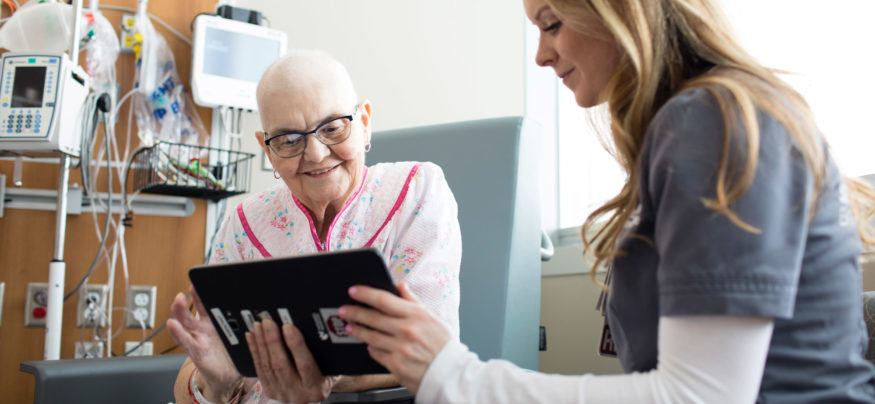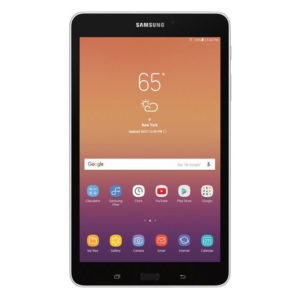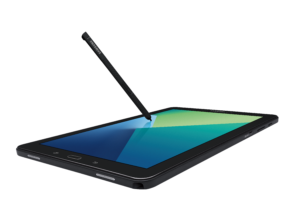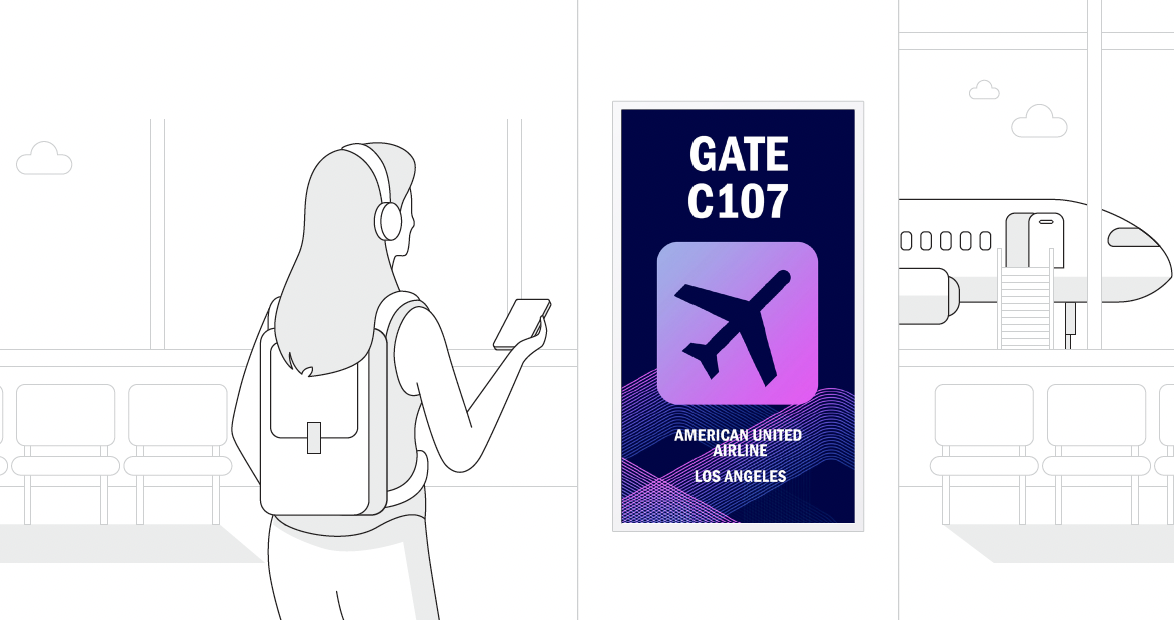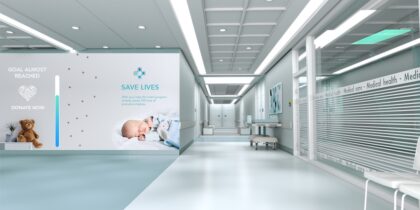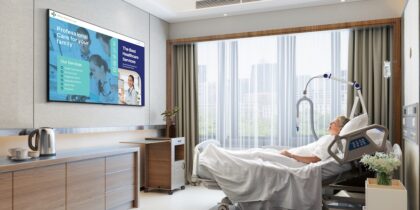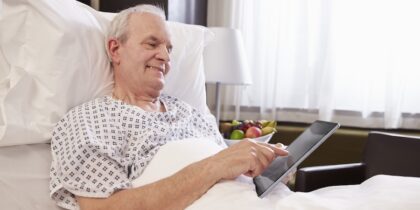
The Challenge
To maximize patient experience and engagement, Nebraska Medicine provides a hospital-owned tablet that can access personal electronic medical records as well as Healing Arts entertainment applications. To ensure that personal information is protected, the tablets must be completely wiped between users. Nurses would have to wait for someone from IT to come and manually reset the tablets — a process that took at least 20 minutes per device and was an inefficient use of valuable resources.
The Solution
Nebraska Medicine chose a new data wiping solution that combines the enterprise-grade security and customization capabilities of Samsung Knox Configure with a new Data Eraser app serviced by Toumetis. Together, Knox Configure and the Data Eraser app perform multiple cleaning tasks with the push of one button. The pre-approved apps stay where they are, but Data Eraser removes any personal data in the cache.
Erasing devices takes two minutes and saves $1,500 monthly
The Results
Because nurses can now manage the data wiping process in just a couple minutes, they can complete the task without IT, who previously had to spend several hours a day on the task. This frees up their time for more important and innovative projects. Nebraska Medicine estimates this productivity boost will pay for itself in less than a month.

One of the Midwest’s leading academic health systems, Nebraska Medicine consists of two hospitals with 809 licensed beds, more than 1,000 physicians and 40 specialty and primary care clinics in Omaha and surrounding areas.
Along with its research and education partner, the University of Nebraska Medical Center (UNMC), Nebraska Medicine has garnered international esteem for breakthroughs in cancer care, organ transplantation and treatment of infectious diseases. The medical school is ranked 17th in the nation by U.S. News & World Report, and Nebraska Medicine has been included on Becker Hospital Review’s list of 100 Great Hospitals in America for the past three years. In 2017, Nebraska Medicine earned the Bernard A. Birnbaum, MD Quality Leadership Award from Vizient, Inc., a distinction given to the top 10 quality academic health systems in the United States.
In 2016, Nebraska Medicine treated nearly 30,000 inpatients, 845,803 outpatients and 88,633 emergency room patients. Together, Nebraska Medicine and UNMC have an annual impact of $4.2 billion.
The Challenge:
Tablets have been making the rounds in hospitals for years, as care teams use them to streamline workflows, access electronic health records and collaborate on the go. In fact, 79.8 percent of hospitals use tablets to coordinate and provide patient care, according to a 2017 study from HIMSS Analytics.
Now, innovative health systems like Nebraska Medicine are realizing that tablets can do more than improve staff communication and productivity. They can also serve as critical vehicles for patients to obtain information and be more engaged in their care, and also provide infotainment and Healing Arts applications that boost patient satisfaction, engagement and positive outcomes.
When Nebraska Medicine began providing patients with tablets, the staff ran into a common challenge: Making the devices useful and fun, but also secure. Nebraska Medicine provides a set of entertainment applications on the tablets, in addition to the patient’s electronic medical record, that are free but often allowed the patient to enter personal information including email and credit card information. This meant the devices had to be completely electronically (as well as physically) wiped between patients. Otherwise, personal data could end up in the hands of the next user — potentially compromising the patient’s Protected Health Information (PHI).
After patients were discharged, nurses waited for someone from the IT department to come wipe them. Once a day, an engineer restored each device by doing a complete factory reset. Then the engineer had to restore the settings and any basic apps or required packages.
“It would take about five minutes to do the work,” says Lizabeth M. Raabe, Senior Application Analyst at Nebraska Medicine. “Then they’d have to sit and wait for the processes to finish, so it took about 10 to 20 minutes to do the actual reset.” Over the weekends and holidays when IT staff was not as available, longer waiting periods meant missed opportunities to provide the tablets to patients.
“I don’t get emails or complaints that there aren’t enough tablets that patients can use since we installed Data Eraser. Which is good.” – Lizabeth M. Raabe, senior application coordinator at Nebraska Medicine.
The Solution:
The manual solution was effective but not efficient. On days when there were several discharges, nurses often found themselves with a stack of unusable tablets and not enough ‘clean’ ones for the new patients. To really get the patient satisfaction boost that they wanted from the tablets, Raabe and her colleagues knew they needed a faster way to wipe the devices.
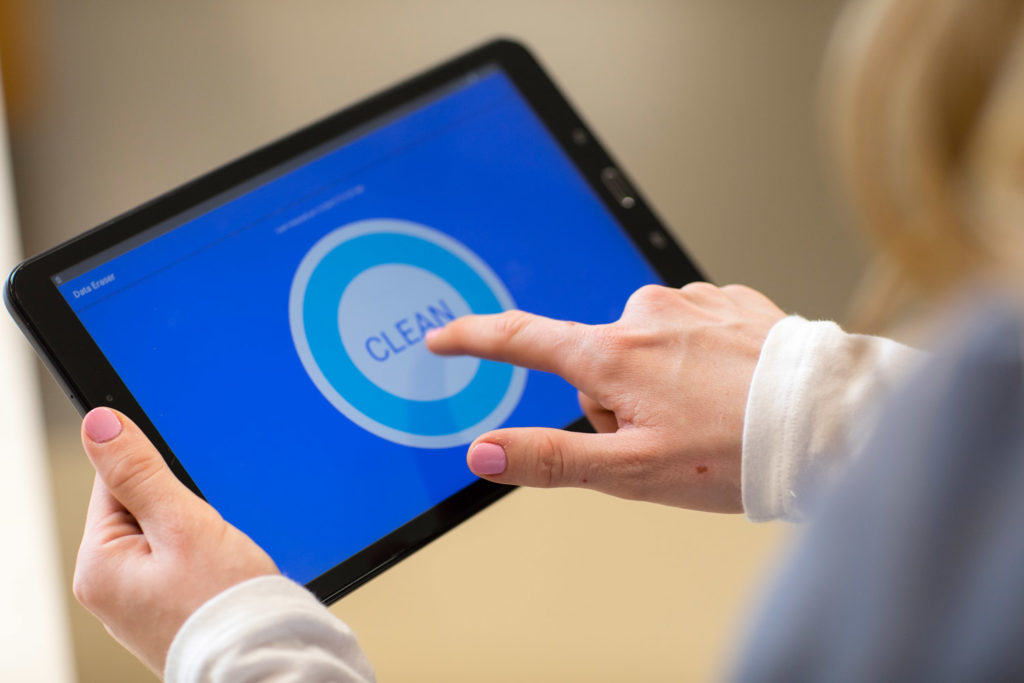
After considering a few options, Nebraska Medicine chose a data wiping solution that combines the enterprise-grade security and customization capabilities of Samsung Knox Configure with a new Data Eraser app serviced by Toumetis.
Together, Knox Configure and the Data Eraser app perform multiple cleaning tasks with the push of one button. The solution quickly deletes new information that patients have entered while preserving the original apps that Nebraska Medicine wants to keep, including security applications such as mobile device management. The pre-approved apps on an exceptions list stay where they are, but Data Eraser removes any personal data in the cache.
The Data Eraser app is now installed on all the Samsung Tab A devices that Nebraska Medicine lends to patients. No development or platform experience is necessary to use Data Eraser, so IT no longer has to get involved on a discharge-by-discharge basis. By simply entering a code and touching the “Clean” button, nurses can wipe the tablets in seconds.
“It has taken away the need for a person to come manually reset the tablet,” says Raabe. “Now it just takes a few steps for the nurse to log in, type the code and leave it to run. This allows nurses to get the tablets turned over faster, and if patients want them, they have more available.”
The Technology:
Tab A
A powerful business tool for improving mobile productivity and workflow efficiencies.
Tab A with S Pen
Take notes and annotate documents and presentations with the precision Samsung S Pen.
The Results:
Leaders at Nebraska Medicine are pleased with the results of the Samsung solution and say they might deploy it on other hospital-owned mobile devices in the future. They have already noticed several benefits, including:
-
- Productivity boost: Because nurses can now manage the data wiping process, IT doesn’t have to spend hours a day on the task, which frees up their time for other long-term and innovative projects. “The process used to take about 20 minutes,” says R. Marc Ferguson, IT Operations Executive Director of Information Technology at Nebraska Medicine. “Now it takes under two minutes to complete and my IT staff are freed up to work on other priorities.”
-
- Cost savings: Ferguson estimates that IT staff spent a couple hours each day wiping these tablets. By getting that time back, the hospital will save roughly $1,500 per month. That means the solution will pay for itself in about a month.
-
- Improved patient satisfaction: Patients enjoy being able to connect with the outside world and entertain themselves while in the hospital. They can also access their) personal Electronic Health Record(EHR)to learn more about their care, medications, care providers, schedules, vitals, and results that increase their engagement in their own care and ultimately lead to positive outcomes.
-
- Improved employee satisfaction: Nurse engagement is critical for the tablet program to work. They’re responsible for introducing the devices to patients and for ensuring unwiped tablets don’t end up in new users’ hands. With the Samsung solution in place, recycling the devices is quick and simple, so nurses are more likely to do it. “I don’t get emails or complaints that there aren’t enough tablets that patients can use since we installed Data Eraser,” says Raabe, “which is ideal.”
Tablets aren’t a new feature in hospitals, but most health systems have only started to scratch the surface of what’s possible with mobile devices. As more and more organizations begin to invest in smart room technology, bedside EHR access for patients and other innovative tablet-based technology, patient privacy and cybersecurity will be central concerns for any deployment.
That’s why forward-thinking healthcare leaders like those at Nebraska Medicine are already looking for quick and easy ways to engage patients with mobile, without compromising their data. With Data Eraser, that task is easier than ever.
Explore cutting-edge healthcare technology in more depth by checking out our full line of healthcare solutions.
